Diaspora
Tinubu, Obi Meet at Pope’s Inaugural Mass
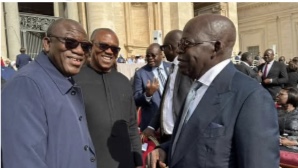
In a surprising display of cordiality, President Bola Tinubu and his erstwhile political rival, Peter Obi, were spotted laughing and joking at Pope Leo XIV’s inaugural mass in Rome.
The two politicians, who locked horns in the heated 2023 presidential election, exchanged pleasantries and showcased a rare moment of bonhomie.
According to presidential spokesman, Bayo Onanuga, Obi and former Ekiti State Governor Kayode Fayemi greeted Tinubu at the event, with Fayemi welcoming the President to “our church.”
Tinubu, however, playfully responded that he should be the one welcoming them as the head of the Nigerian delegation, prompting laughter from Obi.
The lighthearted encounter has been hailed as a positive development for Nigeria’s politics, with some observers hoping it could help reduce tension between supporters of both men.
“They portrayed a good image of the country, and that’s how politics should be played – without bitterness,” said Alkassim Hussain, a member of Nigeria’s House of Representatives.
The meeting comes amid speculation that Tinubu, Obi, and other key players might face off again in the 2027 elections.
Some analysts believe the Labour Party and Peoples Democratic Party could form a coalition to challenge Tinubu, who is expected to seek a second term.
Despite the potential for another intense electoral battle, the Pope’s inaugural mass provided a rare moment of levity and camaraderie between two of Nigeria’s prominent politicians.
Diaspora
Zenith Bank to Host Diaspora Engagement, Banking Services for Nigerians in Texas

Zenith Bank Plc has announced a Diaspora engagement programme aimed at providing essential banking and identity services to Nigerians residing in the United States, with activities scheduled to hold in Houston and Dallas, Texas.
The initiative, according to information obtained by Diaspora Watch Newspaper, targeted at Nigerians in the diaspora, is designed to ease access to banking services and strengthen financial inclusion among citizens living abroad.
The programme will feature free Bank Verification Number (BVN) enrolment, National Identification Number (NIN) enrolment, seamless account opening, account reactivation, and digital banking onboarding.
Diaspora Watch Newspaper further gathered that participants will also benefit from mobile and internet banking activation, instant debit card issuance, and access to mortgage products offered at concessionary rates.
The engagement will further provide a platform for interaction with IT experts, creatives, influencers, and other service exporters, in line with efforts to deepen diaspora participation in Nigeria’s economy.
The Houston leg of the exercise will take place at the Hilton Houston Post Oak by the Galleria on February 24, 25 and 28, 2026, while another session will hold at The Ion, 4201 Main Street, Houston, on February 26 and 27, 2026.
The Dallas session is scheduled for March 3, 4 and 5, 2026, at the Sheraton Dallas Hotel by the Galleria.
Activities are expected to run daily from 9:00am to 6:00pm. Prospective participants have been advised to come along with valid proof of address as stipulated in the registration requirements.
Zenith Bank noted that the programme forms part of its ongoing diaspora banking strategy, aimed at supporting Nigerians abroad with convenient access to financial services and fostering stronger economic ties between the diaspora community and Nigeria.
For further enquiries, interested individuals are encouraged to contact Zenith Bank’s Diaspora Banking desk via WhatsApp or telephone, or through the official diaspora banking email.
Register for the event: JOIN ZENITH BANK IN THE UNITED STATES OF AMERICA TEXAS
Website: https://www.zenithbank.com
WhatsApp/call: +234 913 107 2967
Zenith Bank to Host Diaspora Engagement, Banking Services for Nigerians in Texas
Analysis
Nigeria – US Defence Cooperation: A Reflection from the Diaspora, by Boniface Ihiasota
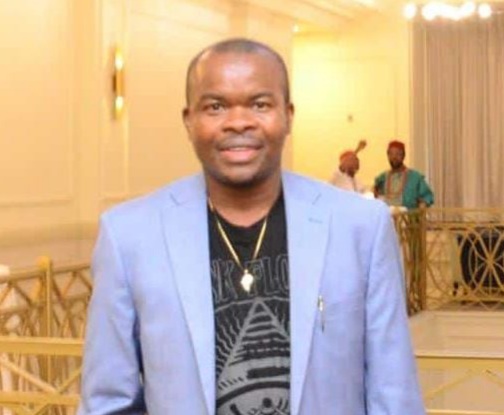
Nigeria – US Defence Cooperation: A Reflection from the Diaspora, by Boniface Ihiasota
The defence relationship between Nigeria and the United States represents one of the most complex and consequential aspects of Nigeria’s foreign policy in the 21st century. Rooted in decades of military engagement, training, strategic dialogue, intelligence sharing, and equipment acquisition, this partnership reflects shared interests in regional stability, combating violent extremism, and strengthening military institutions. For many in the Nigerian diaspora, this cooperation carries both hopes for enhanced security at home and concerns about sovereignty, national strategy, and the implications of external influence.
At its core, Nigeria-US defence cooperation has evolved from traditional military diplomacy to a more multi-faceted, operational collaboration. Since the early 2000s, the United States has provided sustained security sector assistance to Nigeria. According to U.S. government data, more than $232 million in security support was delivered between 2000 and 2021, with notifications of $593 million in Foreign Military Sales and approximately $305 million in direct commercial defence sales to support counter-terrorism, border security, and professionalization of the Nigerian Armed Forces. In 2022 the U.S. announced nearly $997 million in a major foreign military sale that included attack helicopters and associated training as part of long-term capability enhancement.
In practical terms, the partnership nurtures capacity building, professional military education, and logistics cooperation. Both nations have exchanged senior military leaders and engaged in joint strategic dialogues to align responses to shared threats. Nigerian defence officials and U.S. counterparts have regularly convened to strengthen frameworks for cooperation, reaffirming commitments to respect Nigeria’s sovereignty while leveraging U.S. technical expertise.
As insecurity in Nigeria has worsened, especially with the prolonged insurgency of Boko Haram and the Islamic State West Africa Province (ISWAP) as well as rising banditry and extremist violence, the practical aspects of the partnership have taken on heightened urgency. Recent developments illustrate this vividly. In early 2026, Nigeria formally invited additional U.S. military support for training, intelligence sharing, and technical assistance. Nigeria’s Defence Headquarters on Monday confirmed the arrival of about 100 U.S. military personnel and equipment at Bauchi, with planned joint training exercises aimed at enhancing Nigerian troops’ capacity to detect and neutralize extremist groups. Local authorities clarified that the U.S. personnel serve in advisory and training roles, under Nigerian command, in line with bilateral agreements and respect for Nigerian sovereignty.
In neighboring Abuja and among diaspora communities, these movements sparked broad discussions about what external military involvement means for Nigeria’s autonomy and long-term security strategy. Advocacy groups like Citizens for Strategic Defence Cooperation have publicly endorsed the expanded partnership while stressing that it does not erode Nigeria’s sovereignty. They describe the engagement as “measured and strategic,” focused on capacity building, intelligence systems, and joint problem-solving rather than occupation or direct combat.
Beyond boots on the ground, the United States has engaged Nigeria in targeted counter-terrorism operations. In late 2025, the U.S. carried out airstrikes against Islamic State-linked camps in northwest Nigeria with Nigerian approval, employing precision guided munitions through U.S. Africa Command (AFRICOM) platforms. These strikes were designed to disrupt militant networks operating from Sahel corridors and were followed by coordinated intelligence sharing.
Still, the defence cooperation is not without controversy. In the diaspora, commentary reflects a spectrum of views: from optimism about the gains in confronting violent extremism to unease about foreign intervention and the framing of Nigeria’s internal conflicts in international discourse. Former U.S. statements by political leaders, including those linking Nigeria’s actions to religious persecution or threatening aid cuts, have sometimes strained diplomatic goodwill, prompting the Nigerian government to clarify its position and reject broad characterizations of the security situation.
Nonetheless, there are tangible operational outcomes that diaspora stakeholders often highlight as evidence of positive cooperation. Enhanced intelligence sharing has contributed to improved situational awareness for Nigerian forces during operations like Operation Hadin Kai in the North East and Operation Fasan Yamma in the northwest. The timely delivery of military hardware — including drones, helicopters, spare parts, and support systems — pledged by the U.S. demonstrates a sustained material investment in Nigeria’s defence architecture.
For many Nigerians abroad, this partnership epitomizes the balancing act between external support and internal agency. On one hand, there is recognition that no nation is an island in confronting transnational threats. On the other, there is a persistent call for transparency, accountability, and strategies that prioritize civilian protection and national ownership of security frameworks.
In conclusion, Nigeria–U.S. defence cooperation is a nuanced, evolving relationship rooted in shared interests and longstanding military engagement. While it brings considerable resources, training, and strategic depth to Nigeria’s fight against violent extremism, it also requires careful navigation of national interests, sovereignty considerations, and public perceptions — both at home and within the vibrant Nigerian diaspora. Ensuring that this cooperation yields tangible security improvements without undermining national autonomy remains a shared challenge for both nations.
Diaspora
Diaspora Watch Vol. 81

Diaspora Watch Newspaper has released its 81st edition, delivering a sharp, authoritative and globally attuned package of journalism that interrogates power, policy and influence at a critical moment in international affairs.
Diaspora Watch FREE DIGITAL VIEW: https://diasporawatch.com/3d-flip-book/diaspora-watch-vol-81/
On-Demand Print: https://www.magcloud.com/browse/issue/3259915?__r=1069759
SUBSCRIBE TO DIASPORA WATCH NOW ON THE LINK BELOW: https://diasporawatch.com/subscribe-to-diaspora-watch-newspaper/
This latest edition captures the shifting dynamics of global security, diplomacy and governance, with a lead focus on deepening U.S.–Nigeria security engagement against the backdrop of rising terror threats. The report probes the strategic calculations behind the move and what it means for regional stability, sovereignty and counter-terrorism cooperation in West Africa.
Beyond security, the edition reflects the volatility of a world in transition. From renewed uncertainty in Libya following reports surrounding Muammar Gaddafi’s son, to mounting tensions in the United States over federal immigration enforcement and public protest, Diaspora Watch situates breaking developments within their broader political and social contexts.
The newspaper also turns attention to the future, spotlighting technological innovation aimed at Africa’s digital inclusion, as well as urgent calls for stronger regional integration in the Caribbean amid global trade headwinds. Energy policy debates, evolving diplomatic relations between Africa and the United States, and the deepening humanitarian emergency in the Democratic Republic of Congo are examined with clarity, balance and depth.
Rounding out the edition is a culture-driven back-page story that blends politics, celebrity and controversy, underscoring how influence and perception increasingly intersect in the global public space.
With its 81st edition, Diaspora Watch Newspaper reinforces its position as a trusted platform for diaspora-focused journalism—bold in perspective, rigorous in reporting and committed to telling Africa’s story within a rapidly changing world.
Stay connected with the world around you – read Diaspora Watch today!
Celebrating African excellence and spotlighting pressing global issues.
#DiasporaWatch #AfricaInFocus #GlobalNews #CulturalVoices #AfricanPerspective
-
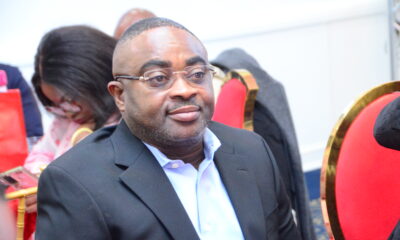
 Extra2 days ago
Extra2 days agoUS Veteran, Walter Obi Urges Compassionate Leadership at Valentine’s Event in US
-

 Diaspora22 hours ago
Diaspora22 hours agoZenith Bank to Host Diaspora Engagement, Banking Services for Nigerians in Texas
-

 Business1 week ago
Business1 week agoZenith Bank, Excel Global Media Discuss Strategic Partnership
-
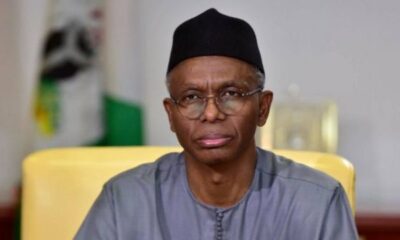
 Analysis2 days ago
Analysis2 days agoIs Nasir El-Rufai on the Peril? By Alabidun Shuaib AbdulRahman
-
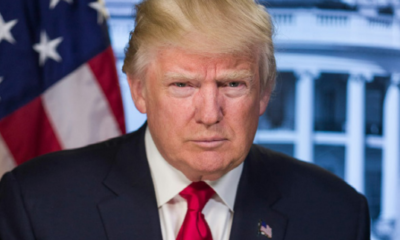
 News1 week ago
News1 week agoTrade, Tension as Trump Threatens US–Canada Bridge Opening
-

 News1 week ago
News1 week agoSenegal Police Arrest 14 in Transnational Paedophile Ring Linked to France






















